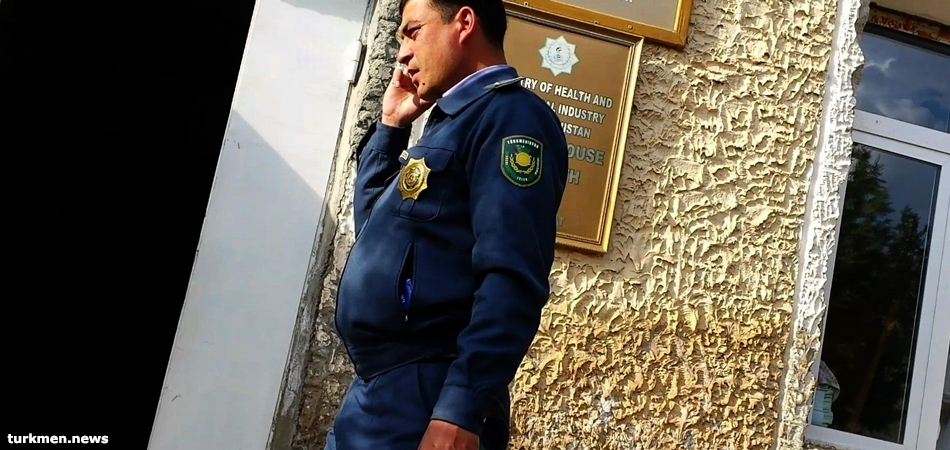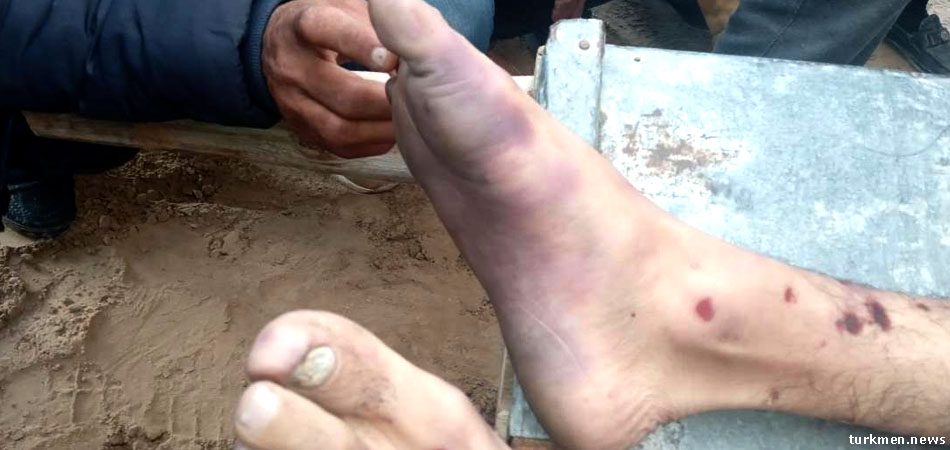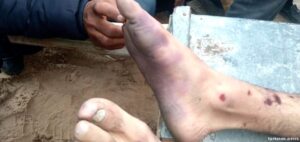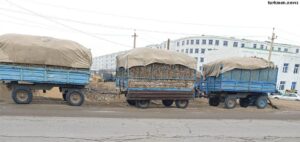
Turkmenistan: Police Demand $1,000 Ransom For Son’s Release
15.01.2020
On February 18, Turkmen Defense Minister Begench Gundogdyyev issued an order cancelling the transfer of housing into the ownership of officers with 10 or more years’ service, and also of those who have moved to the reserve or become unable to work. Military personnel can now receive only service accommodation, from which they and their families will be evicted as soon as they leave the armed forces or die, regardless of length of service. Turkmen.news learned this from a source in one of the country’s defense and security departments, who send us a copy of the order. The change has already exacerbated the lack of officers, especially young officers who were already resigning in droves before this.

Order No. 34 cancels Point No. 5 of the provisions “On the housing stock of the Ministry of Defense of Turkmenistan and procedure for the provision of housing in the Armed Forces of Turkmenistan.” It says that officers who retire after more than 10 years’ service can register their service housing as their own property. In practice this meant the automatic privatization of service apartments. The same provision is included in Article 16 of the law “On the status of military servicemen,” and this article remains unchanged for now.
But the change at the ministerial order level is already causing concern among Turkmen officers. It looks as though the most that military families can count on is to live in service accommodation until the officer leaves the military or dies.
After this they will have to leave their service accommodation, practically being thrown onto the street. This is not a mere formality: no one is allowed to stay in their home for long. Sources tell turkmen.news that after losing the right to use their service accommodation families are given just a few days to get their things together.
Turkmen servicemen and their wives and children shuttle for years between rented rooms, spending more than half their salary on rent. Only the nimblest and sharpest of officers don’t have this problem as they pay bribes to get housing after just five years of service.
Officers who have defended their homeland for 10 or more years and have yet to receive their legal allocation of housing see this as unfair.
But even if someone is lucky, the Turkmen Defense Ministry’s housing stock consists mainly of old apartments, unfit for habitation, and the new tenant has to turn them into more or less acceptable accommodation at their own expense. For example, the old city hospital building in Turkmenbashi has been assigned for the use of the military.
“They are knocking down the walls between the doctors’ offices or between the wards, creating two- and three-room apartments,” a source said. “Military personnel are installing the sewage and drainage systems and doing the other work themselves, but according to the paperwork of the housing management unit (HMU) all the refurbishment work is paid for by the ministry.”
But it takes bribes to get even this opportunity, otherwise personnel have to stay in rented accommodation.
The housing situation and the minister’s new order further complicate the life of Turkmen officers, which was hardly blessed with labor and social guarantees to start with. Their monthly salary is between 3,000 and 4,000 manats ($150-200). Though this sum is higher than the average in the country, it does not in any way compensate for the difficulties of military service.
As everywhere in Turkmenistan, officers have a six-day working week. Instead of an eight-hour working day they spend 10 or even 12 hours on duty. The leadership require officers to be at their posts from 7.00 or 8.00 in the morning, and do not let them go home until 18.00 or 19.00. And even on Sundays officers are obliged to be at work until midday, for example, doing sport. No one pays them any overtime, in contravention of the law.
The penny-pinching is shameful. For example, the family of a deceased serviceman should receive financial help 10 times the size of his annual salary. But sometimes the heads of military units backdate documents on dismissal in order to avoid making the payment. This is all done with the knowledge of officials in Ashgabat.
Officers are pessimistic about the government, the situation in the country, and the very essence of their work – protecting the Fatherland. The Turkmen army is very bureaucratic; the lower ranks are cowed and without initiative. For some time now it has not been accepted practice to send written requests to Ashgabat for essential supplies for a military unit, because officers will be read the riot act for their initiative, excoriated, and sworn at. Inspection commissions will come from Ashgabat and criticize and reprimand the commanding officers. After such a dressing down, you won’t write anywhere again.
As a result, officers are resigning in droves in the majority of military units. A month when just two or three officers leave a unit is considered a success. Numbers are usually higher. And most of them then seek a chance to leave the country. It’s not as difficult as it might seem. If an officer didn’t have access to state secrets, he can leave straightaway; if he did have access, he can leave five years after resignation. If problems arise, bribes can be paid.
Turkmen.news reported previously that the same thing is happening in the police, at least in Dashoguz region. Police officers have decent salaries by Turkmen standards, but they can make as much or more abroad, for example as taxi drivers, with much less responsibility and stress.
It’s a relatively recent trend for military personnel and police officers to leave the country. Until recently it was the unemployed or farmers without hope of being able to support their families who became labor migrants. Now people from the better-off segments of Turkmen society are leaving too. Migration is increasing even though the authorities are trying to restrain it by slowing the issue of passports, maintaining visa regimes with all key countries, and simply without explanation not allowing people with tickets to board their flights.
Turkmenistan’s senior leadership should focus on the situation of military housing, increasing military salaries, and improving support, otherwise there might be such a turnover of personnel in the Defense Ministry that literally no one will be left to defend the country.

15.01.2020

01.02.2024

18.12.2023

Petrofac Back in Favour in Turkmenistan After Falling Foul of Berdimuhamedov
18.03.2024

Murder and Suicide at Troubled Turkmen School
28.02.2024

Turkmen Prosecutor’s Office Claims Baloch Detainee’s Fatal Wounds Were Self-Inflicted
01.02.2024

Low Prices Lead Turkmen Farmers to Sell Cotton Harvest Residues for Fodder
19.01.2024

Young Man Tortured to Death by Law-Enforcement Officers in Turkmenistan (video)
21.12.2023
Tell us!
Add comment
your e-mail will not be published